Dr Ben Anderson of the Sustainable Energy Research Group (SERG) at the University of Southampton has been awarded a prestigious three year EU Global Fellowship under the Marie Skłodowska-Curie programme.
The two year outgoing phase of the fellowship will be hosted by the University of Otago’s flagship Centre for Sustainability where Dr Anderson will be embedded in the ongoing New Zealand GREEN Grid project. This project explores future trends in renewable electricity generation and household demand in New Zealand through a range of data collection, analysis and modelling approaches. Dr Anderson will be working on the integration of electricity smart meter consumption, time diary and census data to develop local area demand models for the Otago region as well as contributing to the Centre’s teaching and knowledge transfer activities.
On his return to the University of Southampton for the final year of the fellowship, Dr Anderson will then lead the application of these developments to ongoing SERG research in general and the LCNF funded SAVE project in particular.
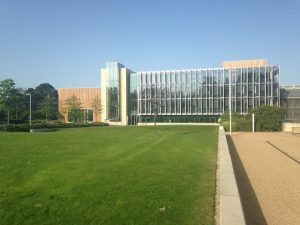 The fellowship provides the opportunity for the University of Southampton to further develop its relationship with one of New Zealand’s most research intensive universities with a particular focus on build longer-lasting collaborative research programmes in the fields of energy efficiency and sustainable energy systems.
The fellowship provides the opportunity for the University of Southampton to further develop its relationship with one of New Zealand’s most research intensive universities with a particular focus on build longer-lasting collaborative research programmes in the fields of energy efficiency and sustainable energy systems.
Professor AbuBakr Bahaj head of SERG and the Energy & Climate Change Division (ECCD) at the University commented “This award is further confirmation of the global impact of the work undertaken by SERG/ECCD which provides real evidence to policy maker in the renewables and energy efficiency areas. I congratulate Ben on the award and I am confident that his work will provide seminal outcomes which will augment and enhance our current and future research areas in cities, renewables and the data underpinning these”.
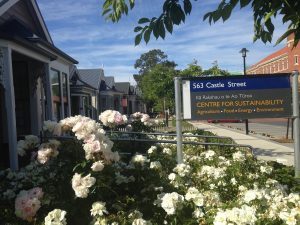 Dr Janet Stephenson, Director of Otago’s Centre for Sustainability said “We are excited to have someone of Dr Anderson’s calibre working with us on our smart grid research. With over 80% of New Zealand’s electricity now generated renewably, it is increasingly important to understand consumer demand so as to better manage variability in supply and demand. We hope Dr Anderson’s work with us will generate insights that are transferable to the EU/UK development of a smarter, greener electricity system”.
Dr Janet Stephenson, Director of Otago’s Centre for Sustainability said “We are excited to have someone of Dr Anderson’s calibre working with us on our smart grid research. With over 80% of New Zealand’s electricity now generated renewably, it is increasingly important to understand consumer demand so as to better manage variability in supply and demand. We hope Dr Anderson’s work with us will generate insights that are transferable to the EU/UK development of a smarter, greener electricity system”.
Recent updates
ECCD research contributes to New Zealand’s Climate Change Commission consultation 03-2021 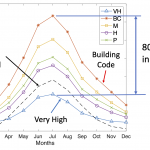
ECCD’s Dr Ben Anderson with Dr Michael Jack and Prof. Janet Stephenson from the University of Otago recently submitted a response to the New Zealand Climate Change Commission’s consultation on its first package of Advice to government. The submission focused on the results of modelling the impact of energy efficiency on space heating demand and, ...
ECCD research highlights value of energy efficient retrofit for New Zealand’s net-zero ambitions 11-2020 
Dr Michael Jack and Anthony Mirfin from the University of Otago and ECCD’s Dr Ben Anderson have developed a model which suggests that building and retrofitting New Zealand’s homes to the highest currently commercial viable energy efficiency level (PassivHaus) would reduce winter heat demand by up to 80% in peak winter months. Since future space ...
Call for papers: Special Issue ‘Big’ and Linked Data in Energy and Water Demand Research 10-2020 
ECCD’s Dr Ben Anderson, Dr Tom Rushby, Professor Patrick James and Professor ‘Bakr Bahaj are editing a special issue of Energies (ISSN 1996-1073) entitled: “‘Big’ and Linked Data in Energy and Water Demand Research: Current Practices, Novel Insights and Future Agendas” Deadline for manuscript submissions: 25 February 2021. The issue, which belongs to the section “Energy and Environment” ...
ECCD responds to Energy Networks Association ‘flexibility’ consultation 10-2020
Dr Ben Anderson and Dr Tom Rushby recently responded to the Energy Networks Association’s consultation on ‘flexibility’. In a a short paper summarising relevant ECCD and colleagues’ research to date they concentrated on the following questions: New DSO Services–2020 Product 5 Q6 At what point do you believe it is appropriate to standardise new products? For example, should ...
Modelling suggests LED uptake could knock 9% off New Zealand’s winter evening peak demand 05-2020 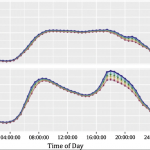
Work by Dr Ben Anderson and colleagues at the University of Otago suggests that future energy-efficient lighting uptake in New Zealand could reduce total annual demand by 1 TWh and reduce the highest winter evening peaks (at 17:00) by at least 500 MW (9%). The winter evening demand reduction would be roughly equivalent to avoiding the need for ...
Peak residential demand analysis for New Zealand offers insights to EECA 12-2019 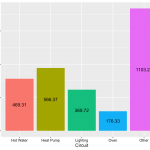
Analysis of New Zealand GREENGrid household electricity demand data conducted by Dr Ben Anderson and colleagues at the University of Otago as part of Ben’s MSCA Global Fellowship have provided unique insights into the compnents of peak residential electricity demand in New Zealand. The analysis, which was also supported by the New Zealand Energy Efficiency and ...
Analysis of New Zealand electric vehicle charging patterns contributes to major report 12-2019 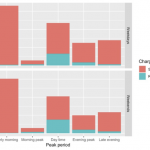
Dr Ben Anderson’s work analyzing the charging patterns of a sample of electric vehicles monitored by FlipTheFleet in New Zealand has contributed to a major new report to the New Zealand Parliamentary Commissioner for the Environment (PCE). The report, which covers a wide range of analyses from a range of contributors incorporated Ben’s analysis, conducted jointly ...
SERG submits response to Ofgem 2019 code review 12-2019 
SERG’s Dr Ben Anderson has just submitted a response to Ofgem’s (2019) Access and Forward-Looking Charges Significant Code Review – Winter 2019 working paper. Ben’s comments focused on: How options could be applied to small users and Ofgem’s Behavioural Insight Report on small users Ben’s comments summarised SERG’s work on the flexibility of electricity demand, energy use habits ...
SPATIALEC New Zealand results workshop 11-2019 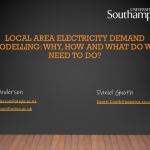
Dr Ben Anderson and Dr Daniel Gnoth (PowerCo) have co-convened a workshop on “Local Area Electricity Demand Modelling: Why, how and what do we need to do?” held at the University of Otago, New Zealand on 20th November 2019. The workshop, which attracted over 20 attendees from across the New Zealand electricity sector was a ...
SPATIALEC project features at ICEC 2019 07-2019 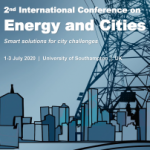
Dr Ben Anderson presented an update on his local area electricity demand modelling work carried out under the SPATIALEC MSCA Global Fellowship at the International Conference on Energy and Cities (ICEC) 2019 held at the University of Southampton. He discussed results from a preliminary model using NZ Census 2013 and GREEN Grid project data to ...
SPATIALEC results presented at the 7th World Congress of the International Microsimulation Association, 2019 07-2019 
Dr Ben Anderson presented an update on his local area electricity demand modelling work carried out under the SPATIALEC MSCA Global Fellowship at the 7th World Congress of the International Microsimulation Association held at the University of Galway. He discussed results from a preliminary model using NZ Census 2013 and GREEN Grid project data to ...
Insights into peak demand effects of heat pumps in NZ presented at BRANZ workshop 04-2019 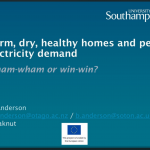
Dr Ben Anderson has presented insights from his SPATIALEC EU MSCA Global Fellowship as part of an invited presentation at a BRANZ-hosted workshop on designing a future NZ domestic Energy End-Use study held in Wellington on April 4th 2019. Ben discussed the contribution of hot water and heat pump use to peak demand in NZ ...
SPATIALEC update presented at RSA Australasia Conference 02-2019 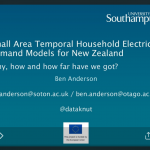
Dr Ben Anderson presented an update on his local area electricity demand modelling work carried out under the SPATIALEC MSCA Global Fellowship at the Regional Science Association Australasia Conference in Christchurch, NZ in February. He discussed results from a preliminary model using NZ Census 2013 and GREEN Grid project data to model small area lighting ...
SPATIALEC/SAVE research features at two NZ conferences 11-2018
Dr Ben Anderson presented two aspects of ongoing SERG work on electricity demand at two recent conferences in New Zealand as part of his SPATIALEC EU MSCA Global Fellowship. The first, Electrifying Heat: Patterns of electricity consumption in electrically heated households in the UK and New Zealand was presented at ICEERB 2018, the 8th International Conference ...
SPATIALEC/Energy Cultures work presented at IEA Technical Symposium 11-2018 
Dr Ben Anderson presented a summary of recent ‘Energy Cultures‘ work at the a Technical Symposium: IEA Energy In Buildings And Communities, in Wellington, New Zealand on 21st November. His talk, which formed part of his SPATIALEC EU MSCA Global Fellowship work explained how the energy cultures framework could be used to understand ‘irrational’ heating ...
SPATIALEC GF supports GREEN Grid project to release unique household electricity demand dataset for public use 09-2018 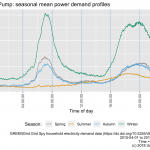
“How much electricity do heat pumps really use? When is hot water heated and are the lights kept on all day in winter?” These and other questions can now be answered thanks to the release of anonymised electricity power demand data from a sample of 45 New Zealand households. The households were recruited in 2014 as ...
SPATIALEC/SAVE work on neighbourhood electricity demand profiles presented at the EPECentre 06-2018 
SERG’s Dr Ben Anderson is continuing to make links with centres of expertise in New Zealand through his ongoing EU Global Fellowship. In this case he gave a summary of SAVE and SPATIALEC work at the University of Canterbury’s EPECentre, a world-class Power Industry research incubator that attracts academics and students from around the world ...
Energy Demand & Supply in New Zealand: Early Impressions 12-2017 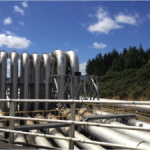
It isn’t hard to find similarities between the British Isles and New Zealand. The traditions derived from the British immigration to the islands (and the South Island in particular) emerge as a common language; as familiar sports at which, for the most part, the Kiwis give us a good thumping; a liking for real ale, ...
SPATIALEC Global Fellowship launches 12-2017 
SERG’s Dr Ben Anderson has just started the outgoing phase of his EU H2020 Marie Skłodowska-Curie scheme-funded SPATIALEC Global Fellowship. Based at the University of Otago’s Centre for Sustainability, Ben will initially be working on combining time use and electricity monitoring data from the New Zealand GREEN Grid project with New Zealand Census data to produce ...
